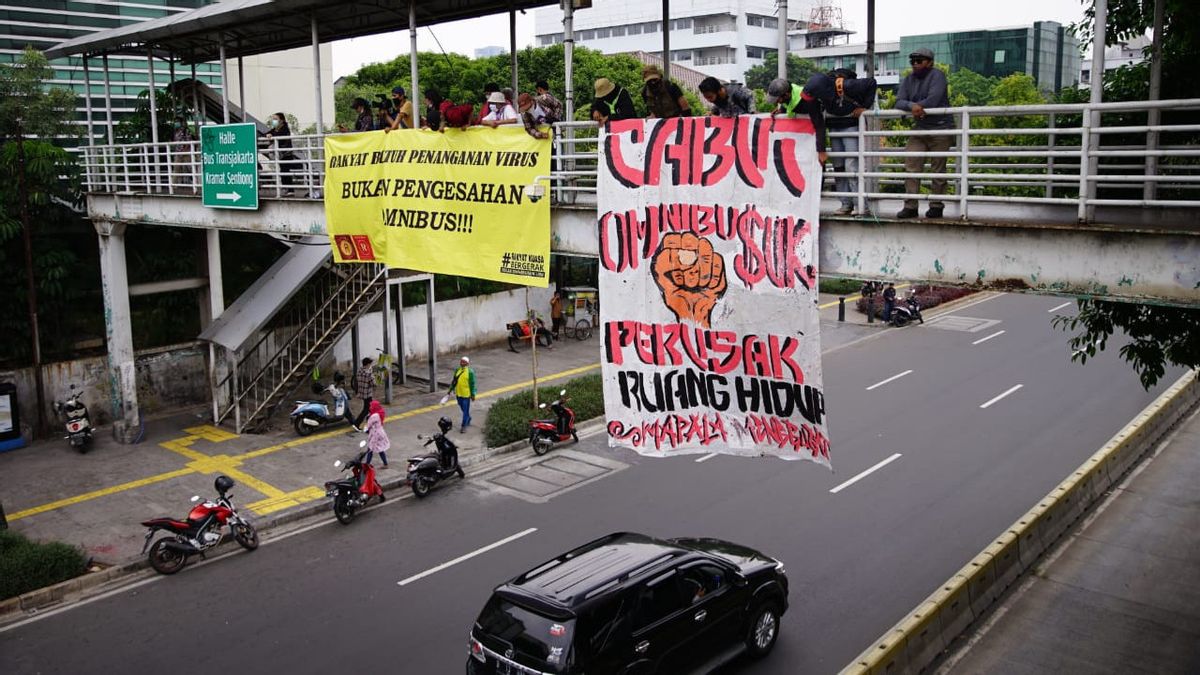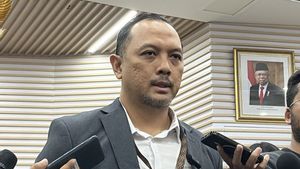JAKARTA - The draft of the Omnibus Law on Cipta Kerja has changed the number of pages on the same day. Most recently, the draft in circulation currently only amounts to 812 pages or less than 223 pages from the previous draft which was 1,035 pages thick.
The Secretary General of the DPR RI, Indra Iskandar, confirmed that there was a change in the page. This difference occurred, he said, because of the paper format used to print the draft.
"Yes (812 pages, red). Lastly, the paper used a legal format. Earlier (the draft with 1,035 pages, red) used A4 format, now it uses legal so it's 812 pages," Indra told reporters, Monday, October 12.
However, he did not elaborate, whether or not there were changes in the substance in the latest 812 pages draft. What is certain, said Indra, this change is purely due to administrative problems.
"I don't want a matter of substance. I'm just an administration," he said, adding that until now no final draft has been sent to President Jokowi.
The fluctuating number of pages on this draft was highlighted by researcher Lucius Karus, a researcher at the Forum for the Concerned People of the Indonesian Parliament (Formappi). According to him, the continued emergence of various versions of the draft draft of the Work Creation Bill which is called the final script adds to confusion in the public space.
This confusion, he said, was also something that was not intentional but could be presumed to have been planned to disrupt information.
"There is a certain design desired by the DPR and the government by disrupting information in public spaces," Lucius said when contacted by VOI, Tuesday, October 13.
Things like this, he said, aim to make the public busy questioning technical problems regarding the availability of the Manuscripts of the Job Creation Law and not criticizing the content or substance in it because it does not have valid material.
Under these conditions, Lucius considered that the government and the DPR RI would carry out their mission, namely to ensure that the substance of this law is in accordance with their wishes.
"The unavailability of an official, valid text in the public space will make it easier for the DPR and the government to control the substance they want to be included in the final draft enacted by Nantin," he said.
In addition, this kind of move also allows the government and the DPR to easily accuse those who criticize it as an attempt to mislead the contents of the law and spread fake news. The reason is, again because the community does not have a valid script.
The appearance of the Secretary General of the DPR RI who always comments on the issue of the number of pages is also considered by Lucius as one of the ways the Indonesian Parliament can buy time when the public questions the final draft of the law passed on Monday, October 5.
"The DPR Secretary General may be assigned to play around with matters of confirming this manuscript. The goal is not to disturb the elite who secure this interest," he said.
"Thus, I think the public will never be able to confirm the final text of the Ciptaker Law until it is actually promulgated," he added.
Moreover, currently all processes are carried out in a closed and systematic manner to secure this law until it is implemented.
Apart from that, Lucius also did not dismiss the public's concern that changing the substance in the middle of the manuscript revision was very likely to occur. If this is done properly, in the future public trust in the DPR RI will decline to its lowest point.
"The cat-and-mouse model in the law-making process will make it difficult for the DPR in the future to gain public trust and will further deepen public disappointment. And in time, this disappointment may turn into anger," he concluded.
The English, Chinese, Japanese, Arabic, and French versions are automatically generated by the AI. So there may still be inaccuracies in translating, please always see Indonesian as our main language. (system supported by DigitalSiber.id)













